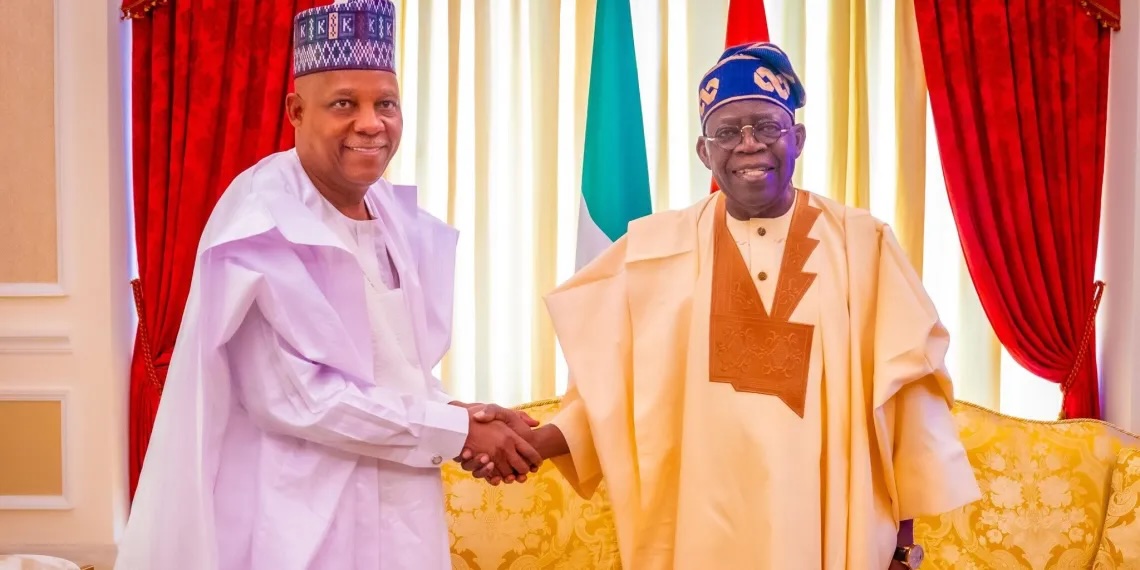
From a dependence on dwindling development assistance to the migration of healthcare professionals, 2025 demands a robust, self-sustaining approach. Nigeria’s health future will require more than hope, it will require strategic investment and effective governance.
Nigeria’s reliance on external aid for healthcare services has been a double-edged sword, and recent shifts in the global geo politics are amplifying these risks. The recent Executive Order signed by President Donald Trump, putting a freeze on foreign aid signals a rethinking of foreign assistance. This move is a wake-up call for many low- and middle-income countries, especially Nigeria that have relied on such aid for public health programnes.
According to United States (U.S.) foreign assistance data, in the fiscal year 2024, $762,586,906of U.S. foreign assistance was disbursed to Nigeria through the U.S. Agency for International Development (U.S. AID), with the majority of funds allocatedto HIV/AIDS services. However, funding cuts are now a looming reality. The suspension or reduction of such funds could ripple across Nigeria’s health system, potentially jeopardising critical services like immunisation, maternal health, and nutrition. The timing of these potential cuts should be a wake up call and spur Nigeria to re-evaluate its dependence on external resources to take care of its citizens.
With global aid on the decline and donor countries increasingly focusing on domestic priorities, Nigeria must confront its overreliance on foreign assistance and ensure that national funds are redirected toward health sector development. The 2025 budget allocates just 5.18 per cent to health, significantly falling short of the 15 per cent target set by the Abuja Declaration. If the country is to ensure long-term health security, it must increase its domestic investments, optimise existing resources, and focus on maximising the effectiveness of health spending. Now more than ever, Nigeria must make health funding a priority, not as a charitable endeavour, but as an essential investment in our own economic future.
As the world continues to grapple with health security challenges, Nigeria remains particularly vulnerable to disease outbreaks. From Lassa fever to the surge of mpox, which led to a declaration of Public Health Emergency of International Concern (PHEIC) by the World Health Organisation (WHO), the country faces constant threats. In 2024, Nigeria made strides by participating in a Phase 2 clinical trial of a Lassa fever vaccine candidate funded by CEPI. This significant milestone offers hope for long-term solutions to a disease that has plagued the country for over 50 years.
However, this progress must be built upon in 2025 to ensure that Nigeria is better prepared for future outbreaks. The Lassa Fever Coalition Governing Entity (LGE), established by WAHO and inaugurated in Abuja, aims to ensure equitable access to safe and effective vaccines for populations affected by Lassa fever.Strengthening Nigeria’s health infrastructure and response capabilities is crucial for managing health security threats.
The migration of Nigeria’s skilled healthcare professionals continues to exacerbate the strain on the health system. Factors such as poor working conditions, low pay, and limited opportunities for career advancement have driven many professionals abroad. This exodus of healthcare workers has compounded existing shortages, undermining the country’s ability to provide quality care. To address this, Nigeria must create an environment that attracts and retains talent. The National Policy on Health Workforce Migration, introduced in August 2024, offers an important step in tackling this issue by creating incentives to retain local staff and attract diaspora health professionals back to Nigeria.
The anticipated launch of the African Medical Centres of Excellence (AMCE) in Abuja in June 2025 will provide a facility for training healthcare professionals and building national capacity. However, these initiatives will only succeed if Nigeria also improves working conditions and compensationfor health workers.
Primary healthcare (PHC) remains the cornerstone of any strong health system, yet Nigeria’s progress in this area has been insufficient. Despite discussions about improving PHC, tangible progress has been limited, leaving many rural areas underserved. In 2024, the launch of the Maternal Mortality Reduction Initiative (MAMII) during the Joint Annual Review (JAR) was a step in the right direction, but without a strong primary healthcare infrastructure, initiatives like MAMII will struggle to succeed. The Basic Health Care Provision Fund (BHCPF) has allocated resources to strengthen PHC, but many health centers are still underfunded and understaffed. Nigeria must prioritise the development of its PHC system by investing in right thing, infrastructure, human resources, and effective health financing. Expanding health insurance coverage will also be key to improving access to essential services.
The National Health Insurance Authority (NHIA) has made progress by enrolling 19.4 million Nigerians in 2024, but further expansion is needed to ensure universal health coverage. To address the country’s health challenges, Nigeria must align its various health initiatives and ensure that resources are efficiently utilised to strengthen the health system.
The private sector’s role in Nigeria’s healthcare system continues to grow, accounting for more than 60 per cent of healthcare delivery. Despite this, the public sector must work closely with private healthcare providers to bridge gaps in access and quality. Leveraging technology to improve healthcare efficiency and affordability will be crucial.
The Presidential Initiative for Unlocking the Healthcare Value Chain (PVAC), is an example of how the government is collaborating with private stakeholders to encourage local production of medical supplies and turn Nigeria into a global hub for health technology manufacturing. This initiative has the potential to reduce Nigeria’s dependence on imports and create jobs, but it will require continued collaboration between the government and the private sector.
As we continue to look ahead in 2025, with the right mix of policy reforms, strategic investments, and partnerships, the country can build a more resilient healthcare system. If Nigeria is to achieve long-term health security and improve health outcomes, it must invest in its own resources, strengthen its health infrastructure, and build collaborative partnerships. These efforts will not only improve the health and well-being of Nigerians but will also contribute to the country’s economic growth and national prosperity.
Ihekweazu is the Managing Director of Nigeria Health Watch.






